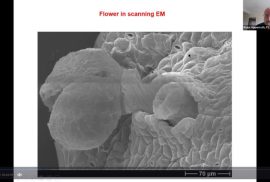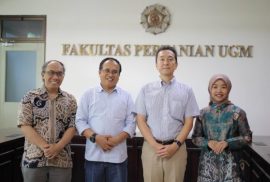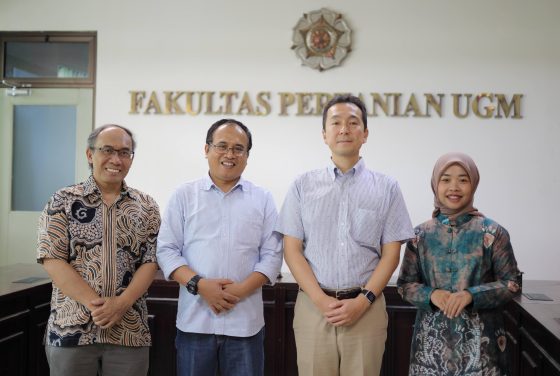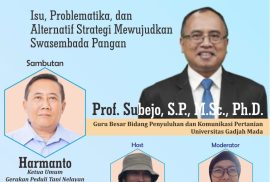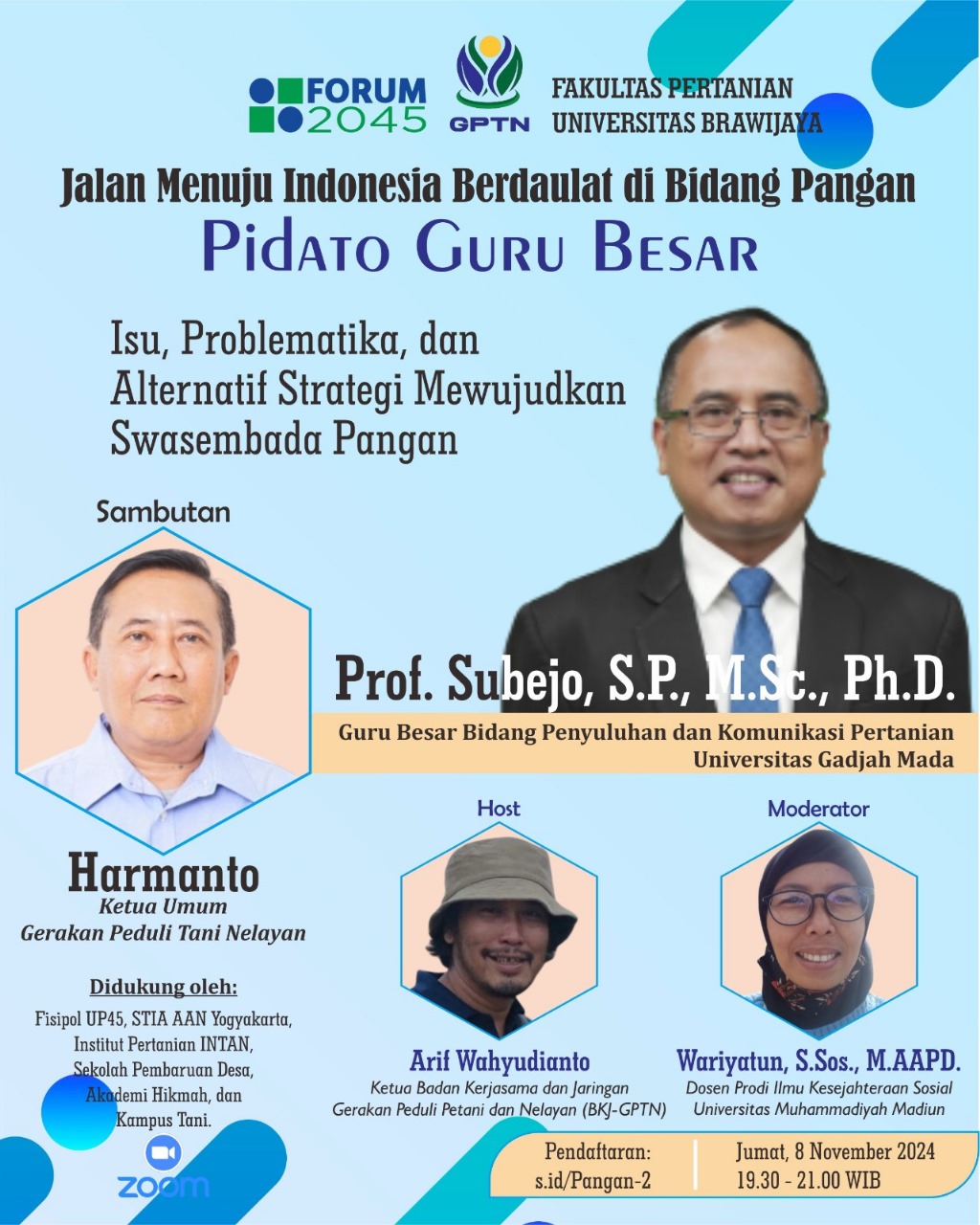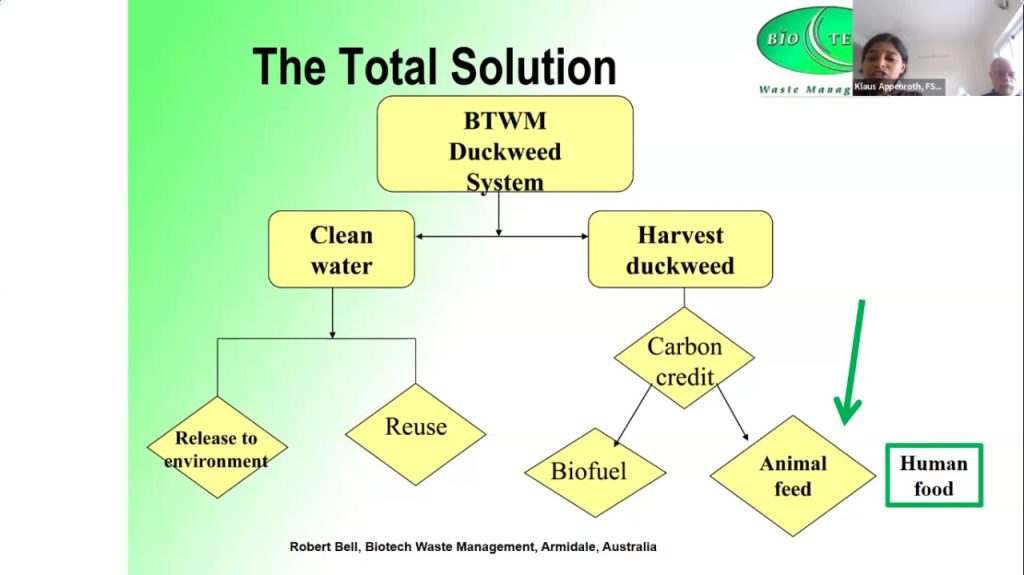
The Department of Agricultural Microbiology, Faculty of Agriculture, Universitas Gadjah Mada (Faperta UGM), held another guest lecture titled “Current Research on Duckweed: an Aquatic Plant with Thousands of Benefits” on 22 November 2024. The event was conducted virtually via Zoom Meeting and featured two renowned speakers: Dr. Klaus-J. Appenroth from Friedrich Schiller University of Jena, Germany, and Dr. K. Sowjanya Sree from Banaras Hindu University, India.
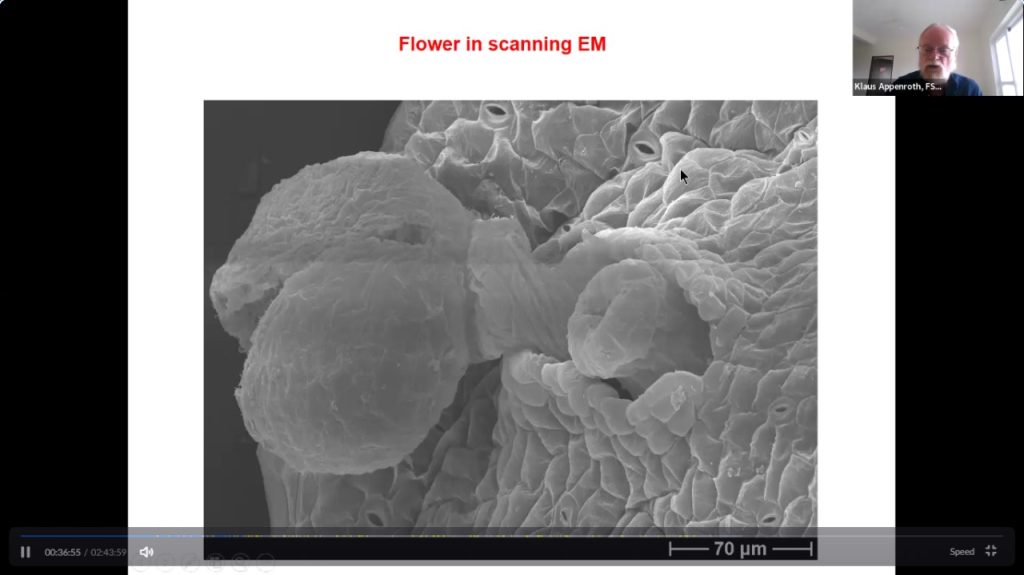
Prof. Ir. Irfan Dwidya Prijambada, M.Eng., Ph.D., a lecturer at the Department of Microbiology, opened the session by expressing his appreciation to the speakers. He also shared that duckweed has been utilized in UGM’s research on bioremediation of agricultural land, including studies on microbial symbiosis with duckweed roots to support its growth.

